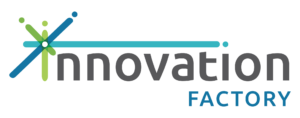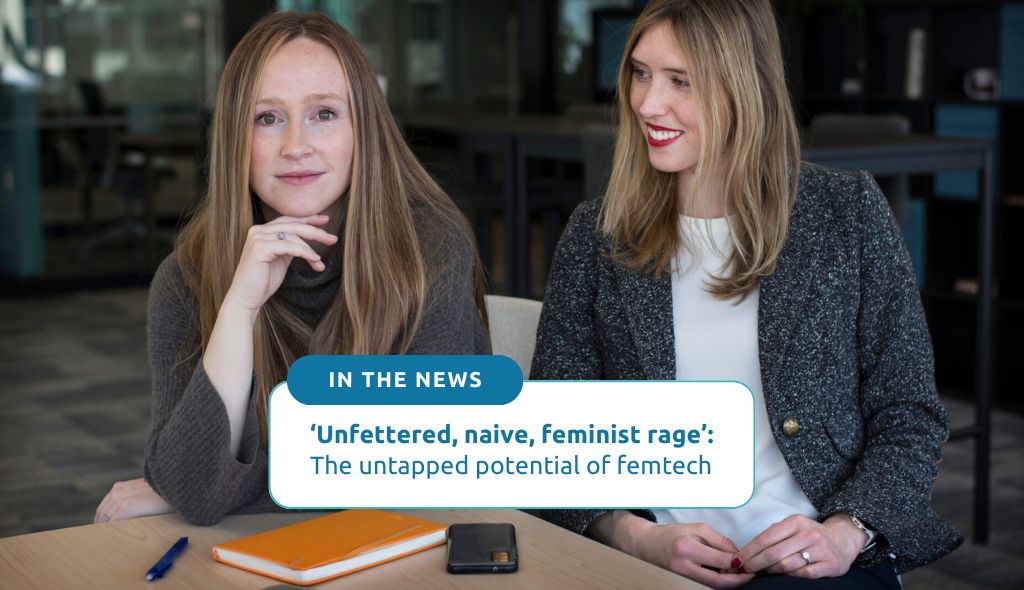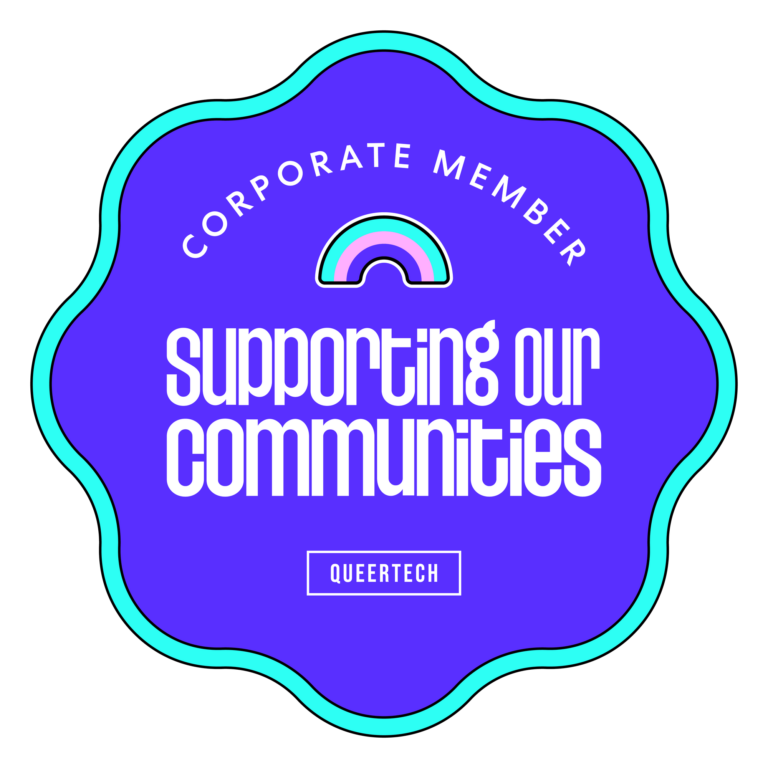Cover image: Danika Kelly (left) and Renee Kokts-Porietis co-founded My Normative in 2020 after noticing gaps in female-specific data. Photo by Jennifer Friesen/Digital Journal
The catalyst that drove Albertans Danika Kelly and Renee Kokts-Porietis to develop a female-focused health research platform came nine years ago when they were studying women’s health from two separate realms of academia.
They realized that, despite the differences in their specialties, their work had something consequential in common: the data needed for their research didn’t exist.
Kelly studied human performance and wanted to understand the impact of oxygen deprivation on the female body, so she sought research about injuries suffered by Alpine athletes. But the existing data wasn’t separated by sex or gender — meaning, for example, the potential differences in rates of injury or recovery between the sexes couldn’t be studied.
Meanwhile Kokts-Porietis, who was conducting female-specific cancer research, found there was limited understanding on how lifestyle factors affected the female cancer populations she was studying.
And so it was with “unfettered, naive, feminist rage,” Kelly told Digital Journal, that she and Kokts-Porietis realized the fundamentals of data collection, analysis, and cleaning needed to change — and went on to co-found My Normative.
The platform and app launched in 2020, aiming to disrupt the sex and gender health-equity gap through validated data collection, management, and analytical processes.
”[It’s] so that moving forward, we can actually allow female persons to get the diagnostic and treatment processes they need to have equal health outcomes to their male counterparts,” said Kelly.
It’s also an example of femtech.
Described by Forbes as “technology products, services and companies that focus on women’s unique health care needs and preferences,” femtech is a sector working to address the health-related gender gap. The McKinsey Health Institute estimates it could boost the global economy $1 trillion annually by 2040.
Under-researched, under-funded, and under-served
It makes grim sense that there’s a burgeoning market for bridging gaps in female health care. According to Femtech Canada, a national network supporting companies in the sector and connecting them with resources for women’s health which has historically been under-researched, under-funded, and under-served.
“Despite that, we make up half of the global population,” said Karen Linseman, VP of Operations at Innovation Factory, a business accelerator operating Femtech Canada.
Just one area where this has been particularly evident is in clinical research, Linseman says. In Canada, women have only been required to be included in clinical trials since 1997.
Even so, researcher Alla Yakerson noted over 20 years later in Women in clinical trials: a review of policy development and health equity in the Canadian context that “women continue to be underrepresented or excluded from important clinical research resulting in a lack of information regarding vital health outcomes.”
Meanwhile, The Globe and Mail reported in 2022 that, “information on how well drugs work for under-represented groups is often lost … [and] these groups may be receiving less effective or even more dangerous treatments.”
While Health Canada recently proposed steps to improve its data collection policies for drug trial sponsors, more barriers in female healthcare continue to include “cost, gender biases, discrimination, stigma about women’s health issues and a lack of funding,” Gilda D’Incerti wrote for Forbes.
The impacts can affect not only women’s quality of life, but also their economic participation and prospects for prosperity.
During her interview with Digital Journal, Femtech Canada’s Andrea Guest emphasized that inequities in female health care — and their consequences — are amplified for Indigenous, Black, and sexually diverse populations.
It’s why the organization explicitly values intersectionality in its work.
“Women as a minority have some minority groups within it that are even less represented,” Guest said. “We need to open those blinders and make sure that we [ask] … ‘How do we make datasets for the trans community, or women of colour?’”
The femtech landscape in Canada
The question posed by Guest is part of what My Normative hopes to help answer.
It partners with private and public organizations that want to study female bodies, Kelly says, and uses the app to collect data provided by the platform’s users.
Their general users can use the app to monitor their own health, but have the option to choose to participate in research projects listed on the app with a promise of data security.
The data gathered is separated by biological and cultural variables, including ethnic ancestry, sex and gender, to ensure sex-based minorities are visible in the findings.
Kelly says My Normative will have about 12 studies on the app in 2024, and when a study ends, users are welcome to continue contributing.

“If [users] want to do more studies … we make sure that they can see [every study] that could be of interest,” Kelly said. “It’s this opportunity to kind of do pop science, and it’s really exciting.”
It’s also the kind of development in digital health that could be particularly valuable in Canada.
”We’re a population that’s spread across a huge amount of land, and we have a lot of rural communities that need greater access to care,” Femtech Canada’s Guest said.
As a result, she said digital health is an “exciting space,” where “we find a lot of innovation happening.”
As for how the sector is developing nationally, Guest says consumer packaged goods currently account for about 50% of its focus — and some notable successes. Leak-proof underwear retailer Knix, for example, reportedly did $170 million US dollars’ worth of business in 2022, while Canadian Business cited Diva Cup’s worth at $21 million in 2023.
Moving the needle
In spite of these inroads, Guest says Canadian femtech is in its infancy. And as is the case with female health care, the sector remains underfunded.
“There’s a lot of room for growth and development,” she said.
Efforts to educate the public about the importance and legitimacy of female health care could help spur femtech development — as could educating funders about the benefits of investing.
After all, according to the McKinsey study, “given the large unmet need and resulting opportunity, those who continue to forgo investing in women’s health may find themselves left behind by the players that tap into this high-potential market.”
Yet Guest and Linseman say some femtech founders — 85% of whom are female — have expressed leaving pitch meetings with funders, who are typically male, feeling misunderstood.
Although Femtech Canada runs training workshops to coach founders on selling their ideas to investors, Linseman says these efforts put a bandaid on a deeper, more systemic issue they want to solve.
“How do we increase the amount of women who are in the investment scene?” Linseman asked. “Because the women-founders and the femtech products [would] be much more easily understood.”
When it comes to moving the needle on femtech in Canada, Guest and Linseman say other nations have set strong examples of success.
Spurred by healthier investment and a greater appetite for risk, Guest says femtech unicorns have emerged from the U.S. to prove it isn’t a niche market.
Meanwhile, in Ireland, strong government support has bolstered the women’s health industry through partnerships between hospitals and femtech startups, in what Linseman describes as an example of beneficial relationships between public and private sectors.
“[We can learn] from other global leaders on … the policy and the priority and the seriousness that they’re giving to the sector,” Linseman said.
As the McKinsey study noted, “women’s health is not a stand-alone issue; it is a cornerstone of societal well-being and progress.”
Every facet of the gender health gap offers opportunities for transformation, should collaborators, including governments and innovators, endeavour to close it, it said — and the venture represents “$1 trillion in economic potential driven by improved women’s health and economic participation.”
“The question is not whether this wealth of opportunities exists,” the McKinsey study read, “but rather who will take the initiative to seize it and drive change.”







